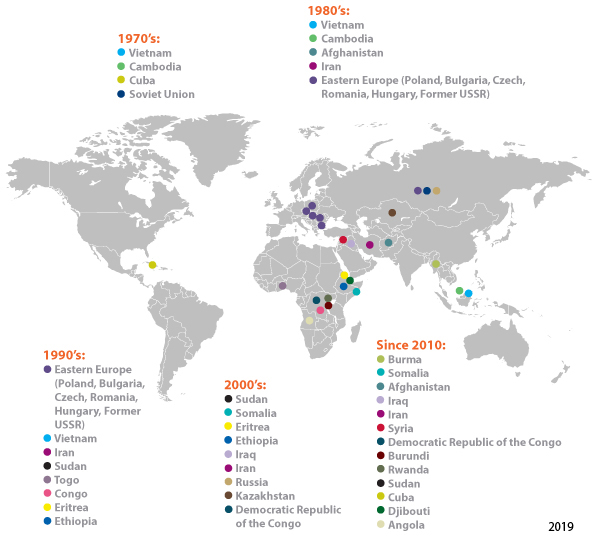The United States is one of many countries (Australia, Canada, Denmark, Finland, the Netherlands, New Zealand, Norway, Sweden and Switzerland) that work with the United Nations High Commissioner for Refugees (UNHCR) to provide resettlement opportunities for refugees needing international assistance and long term durable solutions to their situation.
According to the UNHCR and the US Department of State, Bureau of Population, Refugees, and Migration, although “fewer than 1% of refugees worldwide are ever resettled, resettlement remains a vital tool for providing international protection and for meeting the special needs of individual refugees who are unable to return home.”
The US State Department decides which refugees to resettle within our borders after they have been granted refugee status following individual interviews by Department of Homeland Security (DHS) officials, have passed extensive inter-agency security background checks and have passed health screenings.
Unless a refugee can identify relatives in a particular state within the United States while they are being processed for resettlement overseas, they will have no choice in where they are resettled - up to State Department.
Refugees may move to Maine from other states to reunite with relatives, or seeking Maine's safe communities, good schools, and housing.
Yes, there are certain medical conditions that are excludable. These include active (not positive) TB, past or present physical or mental disorder with associated harmful behaviors, communicable diseases of public health significance, and Hansen’s disease.
Refugee arrivals in Maine mirror the global conflicts of the time:
